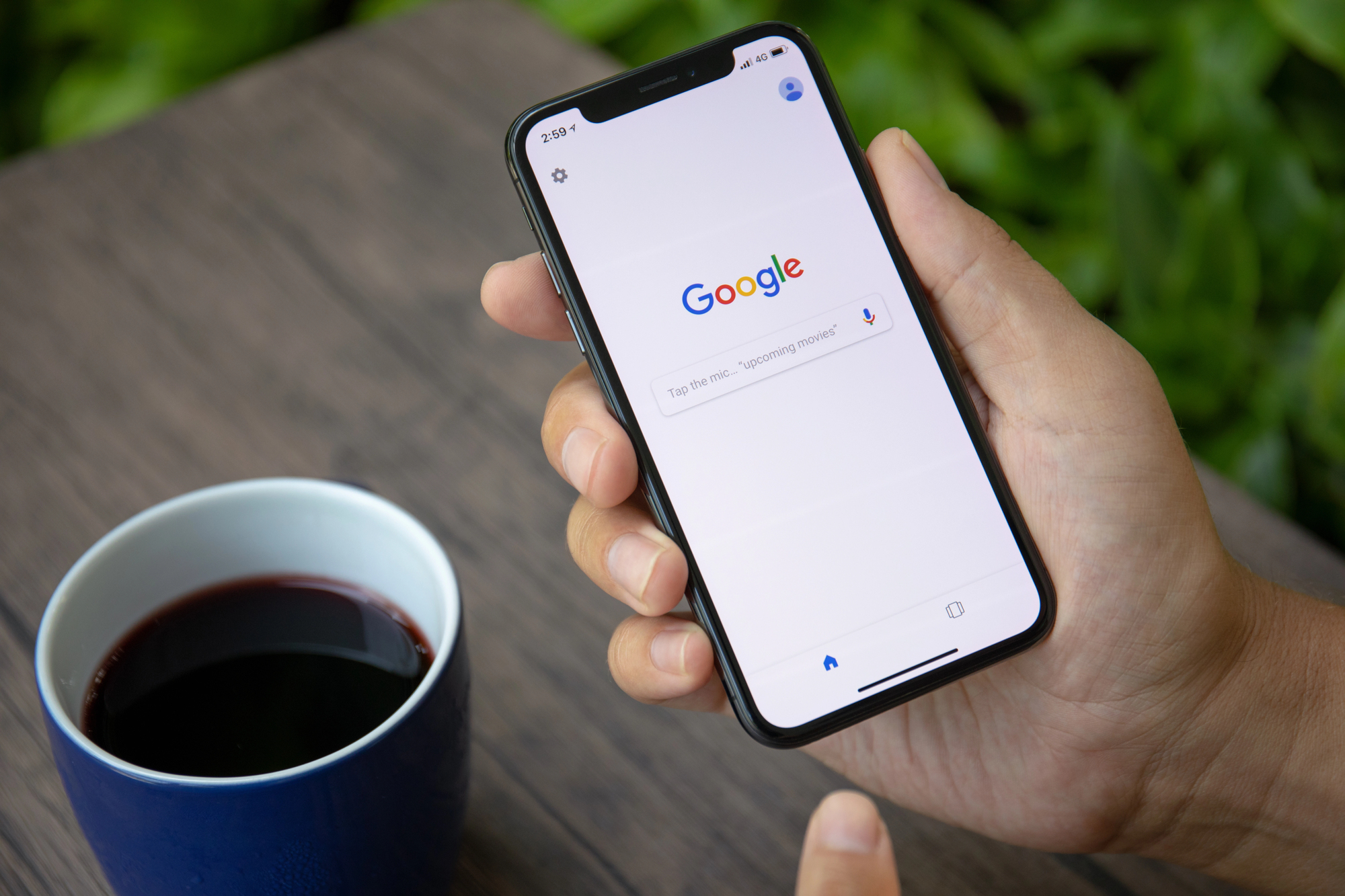There are many ways to attract paying customers to a local business. There are the old-school methods of using print, radio, and TV advertising. These can be effective for raising your brand awareness, but it’s very difficult to track if you’re getting a positive ROI on your ad spend.
PPC and social media posting/advertising are also options. However, these channels have become increasingly expensive recently, to the point where some businesses may have difficulty seeing a positive return on them.
Local SEO, on the other hand, is relatively affordable and gives you results for the long term. Ranking on page one for your industry’s most searched keywords can do wonders for your business — for years to come.
Local SEO Explained in Simple Terms
Local SEO is an internet marketing technique that makes your business appear more prominently in Google’s local search results.
Local SEO is effective for any company that operates locally or serves a specific region. Local SEO goes a long way towards bringing in business to your company by showing up for targeted searches. That’s the great thing about local SEO; you show up in search results when people are searching for exactly what you sell.
People frequently turn to Google when they want to find a local business to serve their needs, so you want to show up for the keywords and map pack listings that show up as results.
How Do Search Engines Like Google Work?
The Internet was a lot smaller in the beginning, so using it meant just visiting a few websites. However, as the internet grew and more information was added to it, search engines were developed to help people more quickly find the websites they were looking for.
A search engine would match a term you typed to web pages that included the keywords in your search phrase. Google used a similar strategy, but it swiftly overtook the competition when it was the first to use links between websites to determine which ones were reliable and authoritative.
Google used links from one site to another as essentially a vote of confidence that a site was trustworthy. So the more quality links a site had, the higher Google would rank it in the search results. A lot of things have changed since Google revolutionized the way search engines work, but links are still a highly relevant ranking factor that you have to take into account when optimizing your website.
To assess whether a website is relevant to display as a search result, Google now takes into account hundreds of factors, both on and off your website. Your “digital footprint” is made up of various factors, each of which has a unique weight or value that the search engine takes into account to produce results. Whether you appear in Google’s top search results depends on your overall digital footprint, otherwise known as ranking factors.
To return a list of search results that match the user’s query, Google analyzes the pattern of these ranking factors of websites to determine which ones they should display to the user.
Most people are unaware that when they type something into Google’s search bar, it doesn’t actually immediately perform a live search of the entire internet. Actually, it’s searching a cached collection of every site that Google has found. This is referred to as Google’s index.
Google uses “crawlers,” which are programs that crawl the web to create the index. Every crawler operates in the same manner: it begins on a single page, follows the links on that page, then scans the information on subsequent pages, and so forth.
As web content is crawled, Google’s servers store it and add the information to its index. The size of the spiders’ reach is impressive; they continuously crawl trillions of pages at a fast pace. By doing this, the index is kept as current as possible, and new websites and links are found relatively quickly.
One important takeaway from this is that Google is constantly crawling the web, and they want to see fresh content, so you need to be frequently updating your website and keeping it current to earn and maintain rankings.
What are local SEO ranking factors?
Google uses a number of criteria to determine where your business will appear in search results. These consist of:
- Your Google Business Profile (formerly Google My Business)
- On-page optimization (the content on your web pages)
- Customer reviews
- Citations and links to your website from directories and other websites
- Consistency of name, address, and phone numbers (NAP) in local business citations (this is becoming less and less important)
How Local Search Engine Optimization is Different from General SEO
The primary Google search results for local rankings and the local map pack results are powered by different algorithms. As a local business, you have the opportunity to simultaneously show up in the local map pack and the primary organic search results.
Knowing what to concentrate on to make your efforts as effective as possible can be difficult if you’re new to marketing your local business online.
In many regards, local SEO is easier to rank in when compared to national or internal SEO, as there’s a lot fewer businesses to compete with on the local level. However, you do need to be aware of some local SEO-specific things to optimize, like having a Google Business Profile listing for your company, local citations from directories, reviews from real customers, and of course your website.
Why Local SEO Is Important for Local Businesses
About 93 percent of American consumers look for nearby businesses online, and 88 percent of local mobile SEO searches lead to a visit to a store or a phone contact within 24 hours.
Local SEO is the best way to connect with consumers specifically searching for what your business offers.
To ensure that your company ranks highly in local SEO search results and experiences revenue growth, you need a well-optimized website and Google Business Profile.
You can do your own local SEO, but it does take a substantial amount of time to learn to do it well. Investing in high-quality local SEO services could make the difference between a successful company and failure in today’s cutthroat digital environment.
The Role of Google Business Profiles in Local SEO

Google Business Profile, formerly known as Google My Business (GMB), is one of the most effective ways to connect with customers locally. Google Business Profiles provide businesses with listings that showcase their brand and products and services.
When someone searches for your business name, there are several places where they might find information. For example, they could type “best pizza place near me” into Google Maps and see a list of nearby pizzerias. Or they could type “best pizza place near me” directly into Google and read reviews from satisfied customers.
But what happens if your business doesn’t show up in either of those lists? If a customer types in your business name, but no results come up, how do they feel about your business? How do they even know if your business exists? If you don’t have an online presence, they’ll likely choose one of your competitors over yours.
Claiming your Google Business Profile allows consumers to learn about your business without having to dig around to find your business information. You want people to be able to find you as easily and fast as possible. When they do discover your Google Business Profile, they’ll see your address, hours of operation, website, phone number, photos, and more. This gives customers the information they need to either contact you through your website or phone. They’ll also see whether your business has been verified by Google, giving them confidence that your business is trustworthy.
How To Do Local SEO for Your Local Business
Local SEO is important for small to medium-sized businesses looking to increase their visibility in search results for nearby customers. With the right strategy, you can improve your rankings on Google and other search engines, making it easier for local customers to find your business.
Here’s how you can do your own local SEO for your business.
Optimize Your Google Business Profile
One of the first things to focus on is optimizing your Google Business Profile (GBP). This is your business’s profile on Google, which appears when people search for services in your area. Here’s what you need to do:
Ensure all business information (name, address, phone number, and website) is accurate.
Keep your profile updated with relevant details like hours of operation, services, and photos. Also be sure to select the most relevant categories for your business, as this will have a significant effect on what your GBP ranks for.
Lastly, encourage and respond to customer reviews, as positive feedback helps boost your visibility.
A well-maintained GBP not only improves your local SEO but also builds trust with potential customers.
Keyword Research & Strategy
Keyword research forms the backbone of your local SEO strategy. It involves finding out what search terms your target customers use when looking for businesses like yours in your area.
Here’s how to approach it:
- Research relevant local keywords using a keyword research tool. There are cheap tools for this such as Keysearch or Ubersuggest. If you want a more comprehensive tool for your overall SEO efforts, tools like Ahrefs and SEMRush are more robust.
- Map out the pages of your website to target these terms. A common strategy is to create service pages for the services you offer and then create child pages to these to target the locations you serve.
On-Page Optimization
On-page optimization is all about improving various elements of your website to help it rank higher in local searches. Here’s what you should focus on:
- Use relevant keywords in meta titles, descriptions, and content.
- Optimize images with proper alt tags and compress them for faster load times.
- Ensure your site is mobile-friendly and easy to navigate, especially since many local searches happen on smartphones.
- Include internal links between related pages to improve both user experience and SEO.
These steps improve your site’s relevance for local searches, making it more likely to show up when people are searching for your services nearby.
Entity Optimization for Local Businesses
Entity optimization for local businesses means enriching your content with related terms and concepts that help search engines and users fully understand your offerings. Unlike focusing solely on keywords like “coffee shop near me,” entity optimization incorporates terms such as “espresso,” “pastries,” “barista,” and “free Wi-Fi” to build a richer context. These entities make your content more comprehensive and signal to Google that it’s relevant and authoritative in your industry.
To find the right entities, using an on-page optimization tool like SurferSEO, Frase.io, or ScaleNut is invaluable. These tools analyze top-ranking content to identify related terms you might not think of, ensuring your page aligns with what search engines expect. For example, a hardware store might optimize for entities like “power tools,” “garden supplies,” and “DIY projects” alongside its main keywords.
Incorporating these terms naturally into your content not only improves your chances of ranking higher in search results but also creates a better user experience by answering customer questions thoroughly. Entity optimization ensures your content stands out in competitive local markets, giving your business the edge it needs to attract more customers.
Managing Local Citations
Local citations are online mentions of your business’s name, address, and phone number (NAP) in online directories. These citations help Google verify your business’s information and improve your local ranking.
To manage your citations effectively:
- Make sure your business is listed on major directories like Yelp, Yellow Pages, and industry-specific platforms.
- Consider using a citation management tool to build these.
- Keep these citations as accurate and consistent as possible.
Building High-Quality Links
Link building is an essential part of SEO, but it can be challenging. Google sees links from other reputable websites as a sign of trust.
Here are some ways you can go about link building:
- Partner with local businesses or organizations to gain backlinks from their websites.
- Create high-quality content that others in your industry or community might want to link to, such as blog posts, guides, or local news updates.
- Offer to write guest articles on other websites where you share your expertise on your business.
- Build link magnet content. The most effective way of doing this is to create pages with statistics about your industry – other websites frequently link to such pages to cite their sources.
Building these relationships takes time but can significantly improve your rankings in search results.
Making Local SEO Work for Your Business
Local SEO plays an important role in helping your business connect with nearby customers, driving traffic both online and in-person. By optimizing your online presence through your Google Business Profile and your website, you can enhance your visibility in local search results.
While this process can take time, the benefits of increased search rankings and customer acquisition will gradually pay off.
If you need additional guidance or support, seeking expert help may save you time and ensure you’re using best practices. With the right agency and local SEO services, you can significantly impact the growth of your business.


